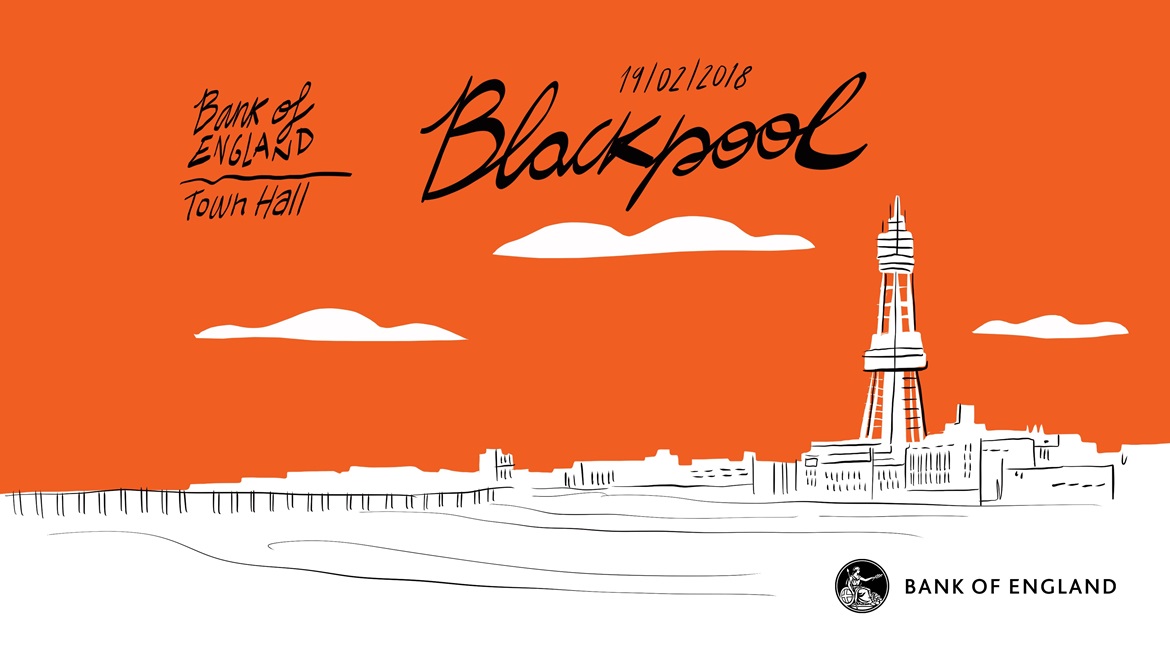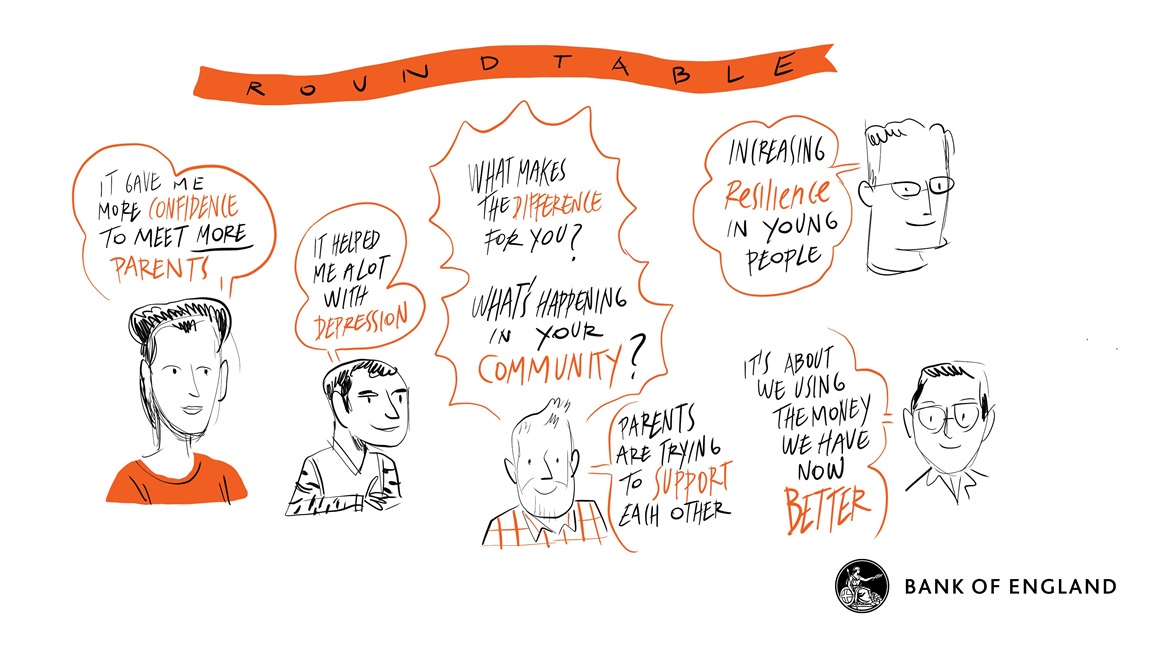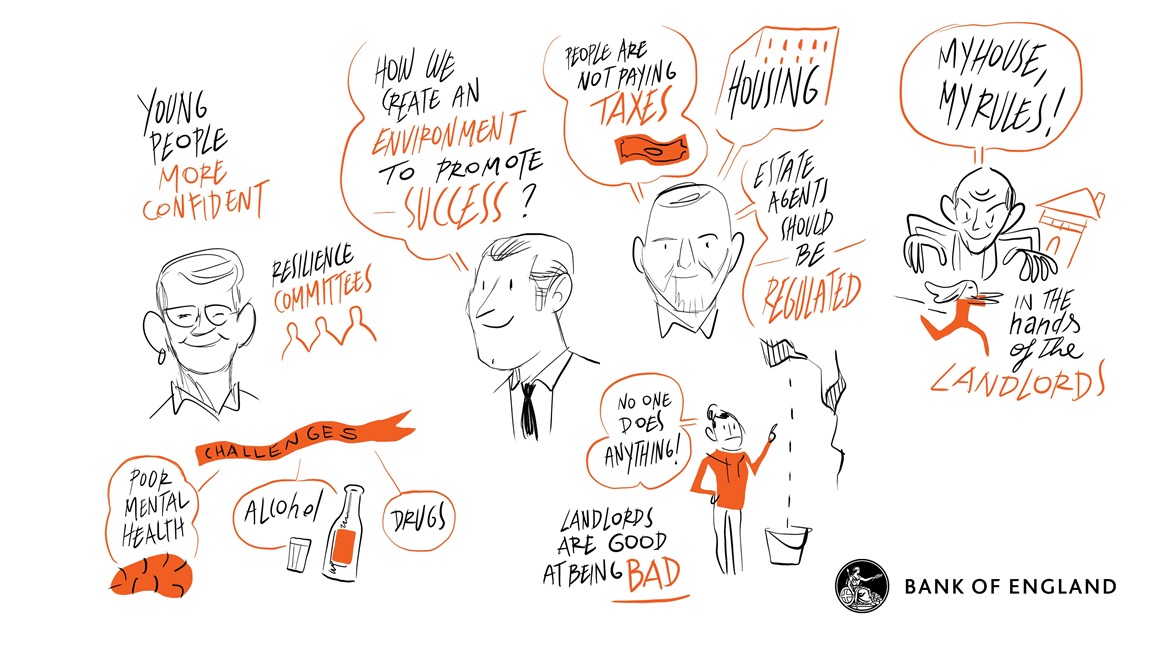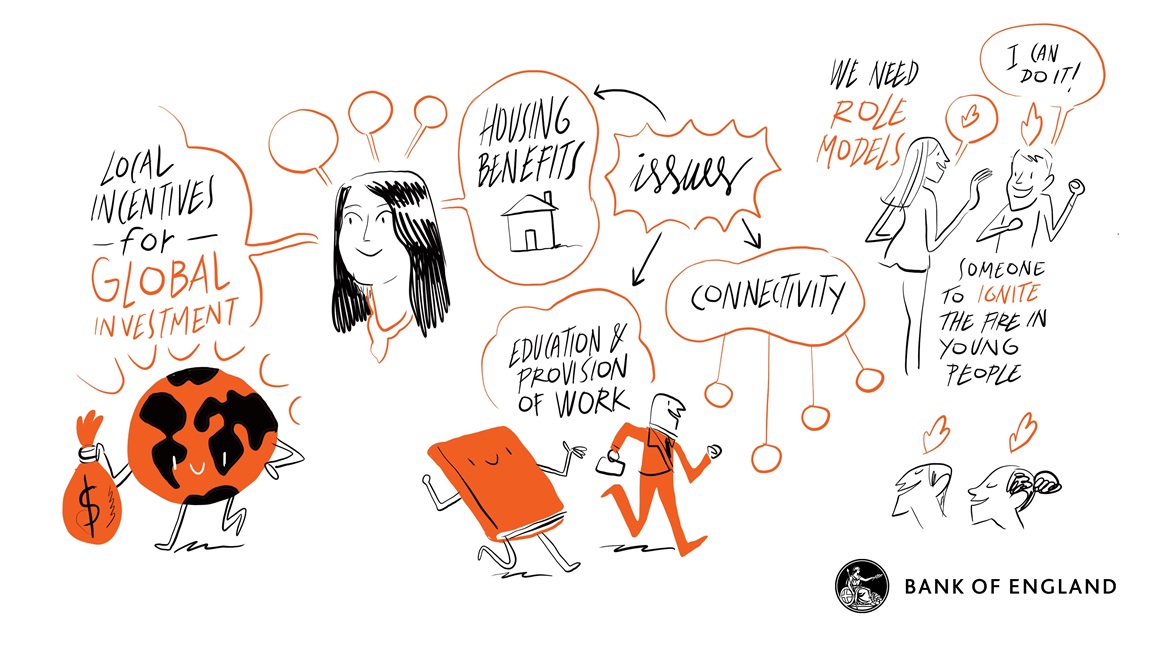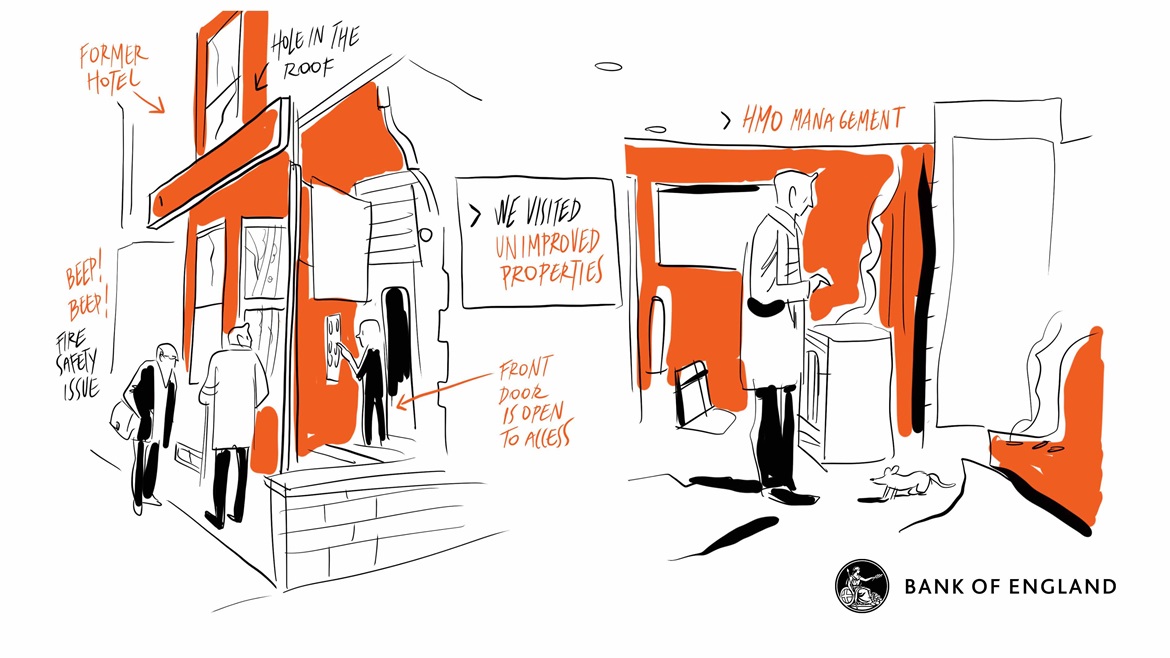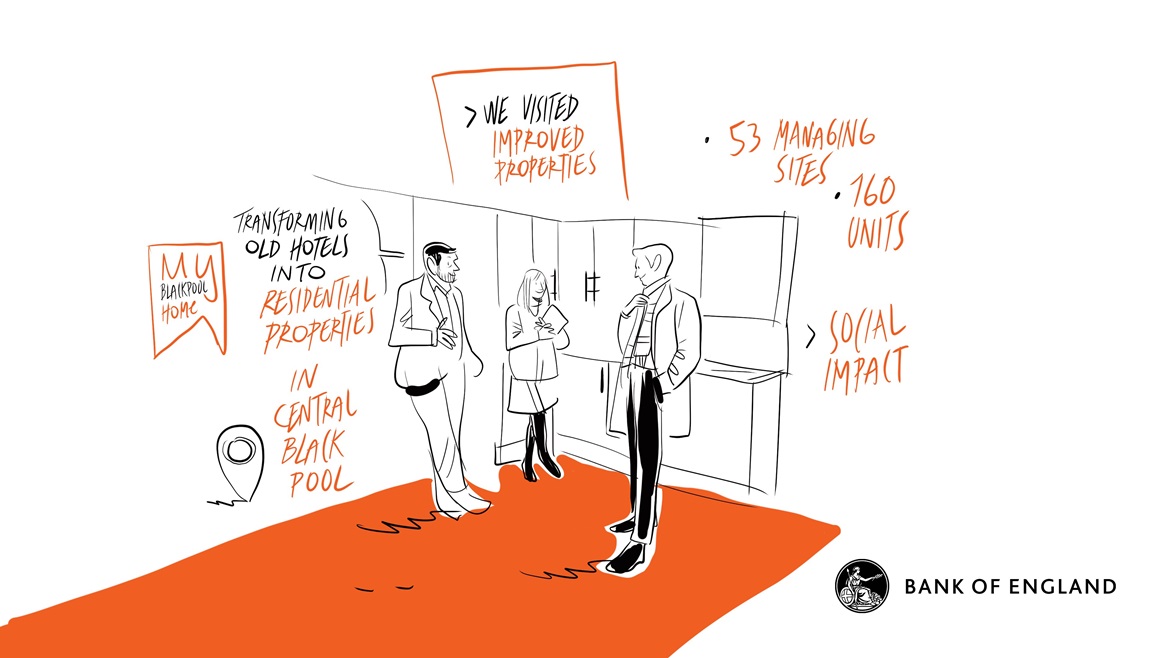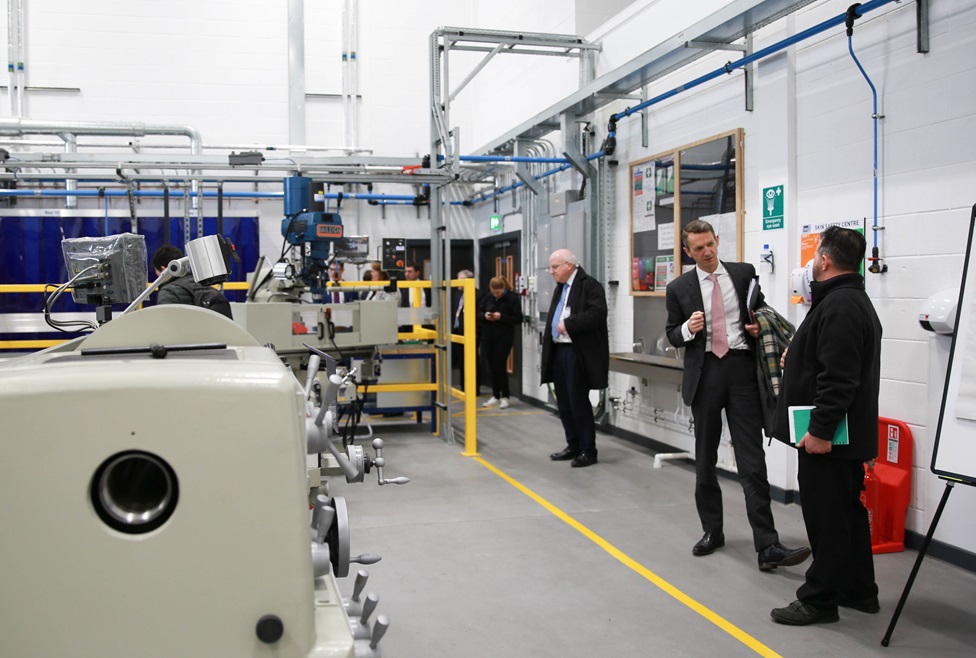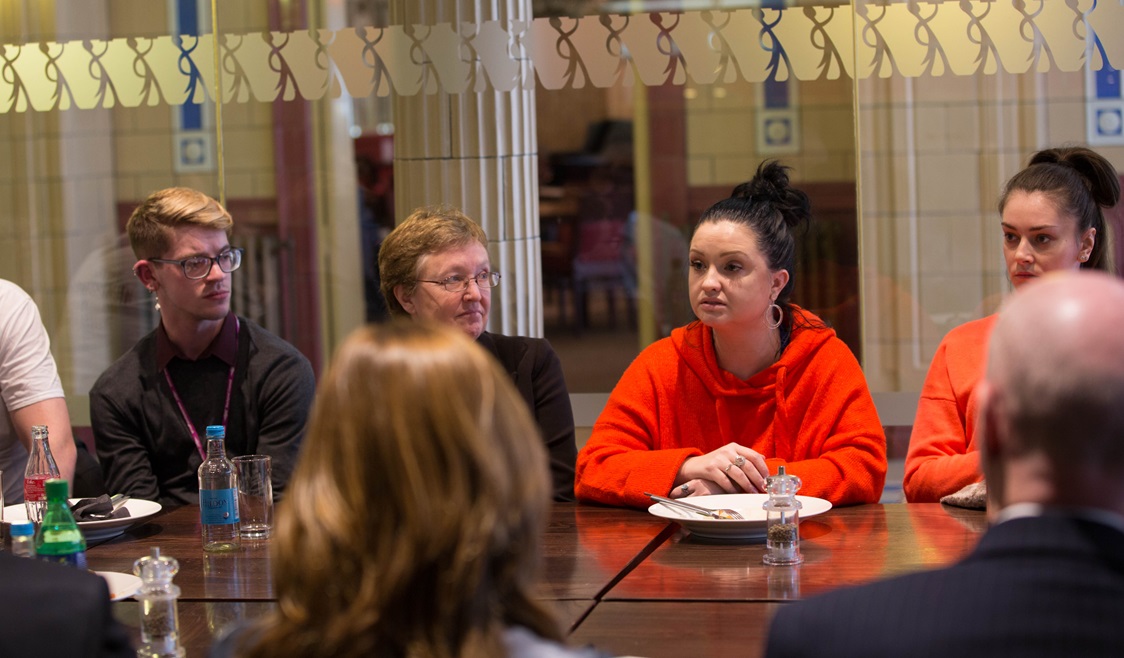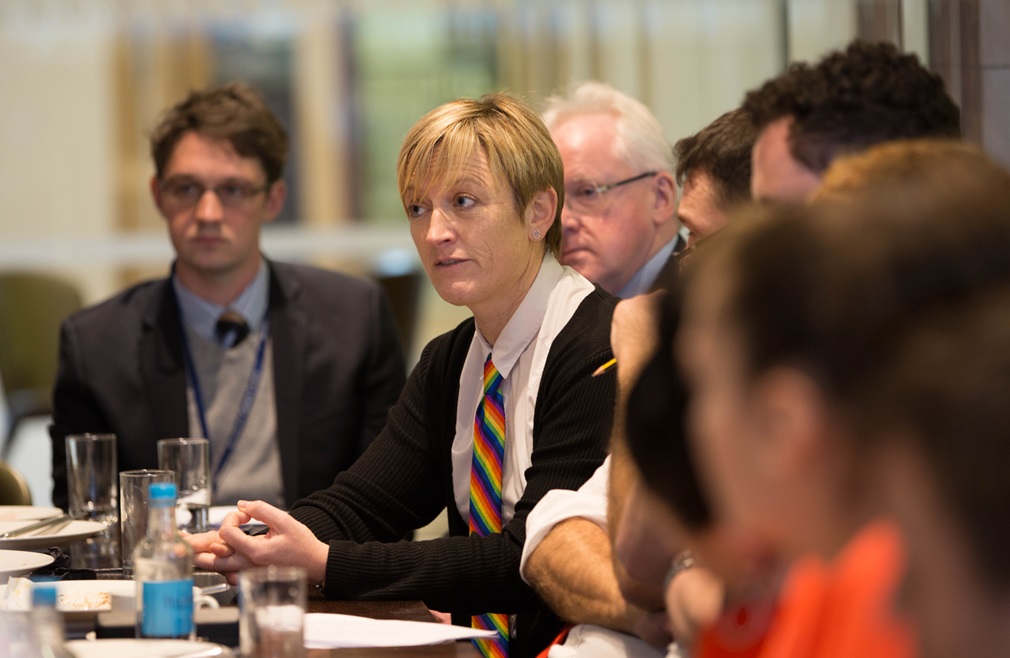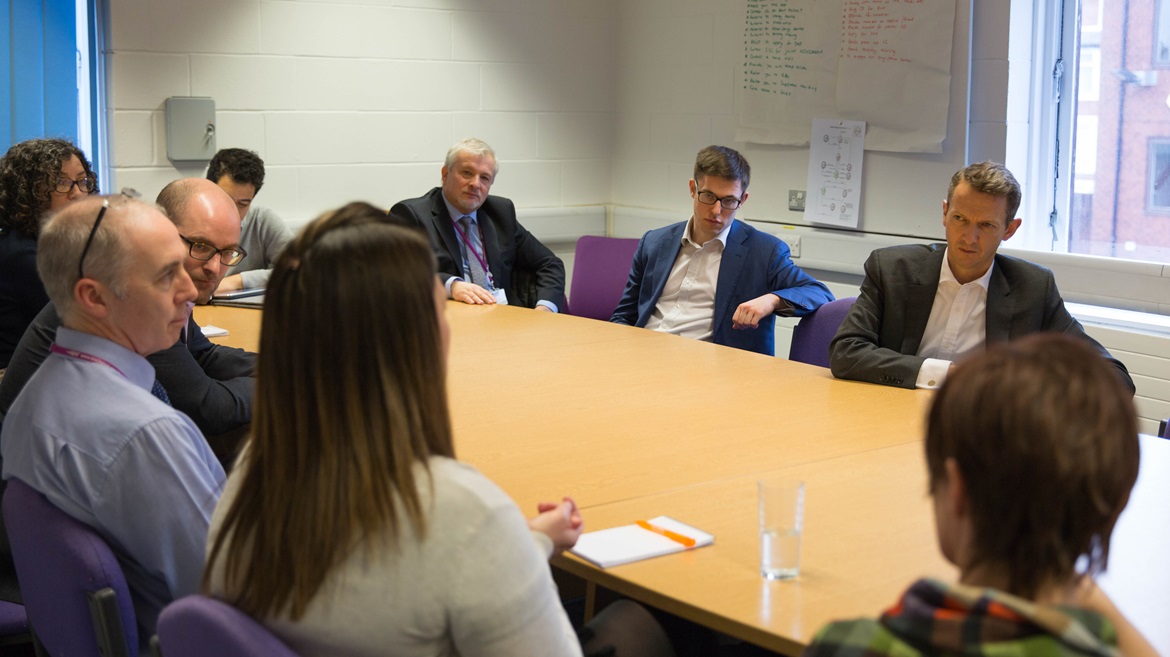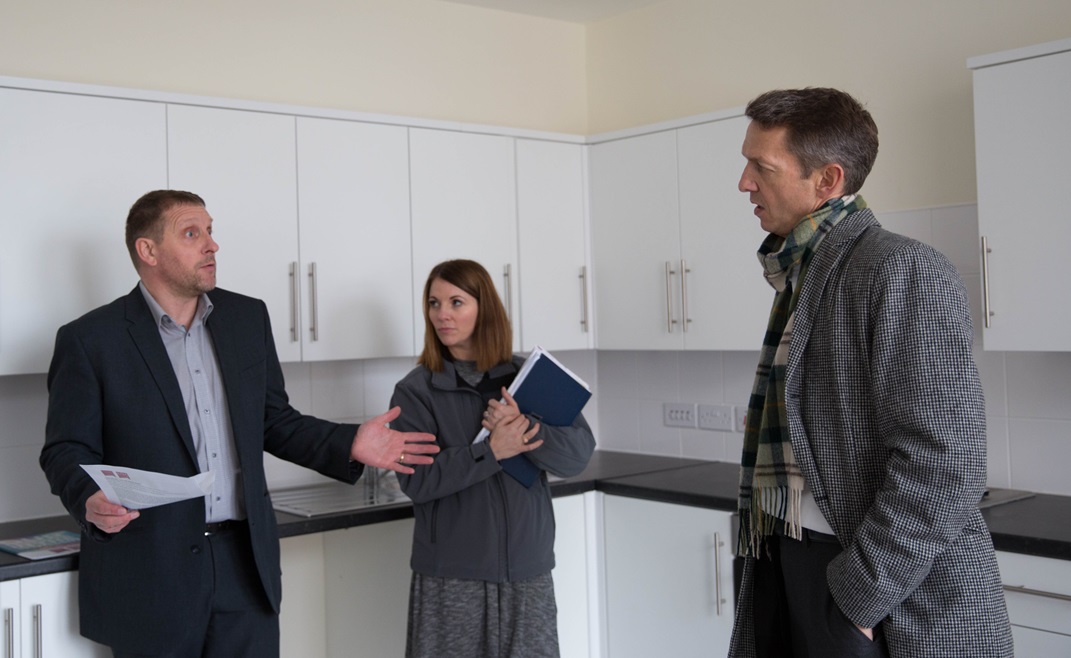Andy Haldane's Town Hall blog: Blackpool
Earlier this week I visited the seaside town of Blackpool in Lancashire for my latest Town Hall visit. This was expertly organised by Blackpool Council. I also spent some time in and around Blackburn and Preston, speaking at a local Chamber of Commerce, at a school and visiting a debt advice charity. The two days involved meeting a wonderfully enthusiastic, open and diverse set of people including university, college and school leaders, members of the local community, businesses, volunteers and leaders of voluntary service organisations, the police, GPs, as well as staff working for Blackpool Council.
It is many years since I last visited Blackpool, as a child during my summer holidays. My memories are, naturally enough, of the Tower, the Pleasure Beach, the golden sands, the illuminations and of it always being warm and sunny. They are fond memories. Back then, Blackpool was still one of (if not the) premier holiday destination in England, certainly in the North of England where I grew up. At its peak in the 1980s, there were an estimated 6,000 guest houses in the town (population 150,000) serving the needs of tourists.
Blackpool remains, first and foremost, a tourist town. All of the town’s fantastic tourist landmarks remain. But the town has changed (as has the weather) and not for the better. The decline in the tourist trade has reduced revenues and employment prospects in the town. Employment rates are below national averages and, for those in employment, pay is often low and volatile. A spiral of low skills, insecure work and weak aspirations has set in. Blackpool ranks towards the bottom of most UK’s lists of physical and mental health. The average male in Blackpool dies 8 years younger than in the UK at large.
This slow decline is clearly visible in the housing market. As tourism tailed off, the numbers of guest houses in the centre of the town have fallen. Many have been sold, cheaply, to private landlords and converted to multi-occupancy, private rental accommodation. Unlike in some other towns and cities in the UK, there is no shortage of places to live in Blackpool. The problem is not the quantity but the quality of this housing. This is at best mixed, at worst shockingly poor.
I spent time discussing this with council staff and local residents. I also visited a private rental accommodation in the centre of Blackpool as it was inspected by the council. It was uninhabitable and the council issued a closure notice that day. In this case, private landlords had bought the property cheap and packed it high. Sustained by a quasi-guaranteed income stream of rents, paid for through housing benefit, the landlord had probably made double-digit rental returns. Yet, clearly, none of these had been reinvested to maintain the quality of the accommodation, to the point where it had become a doss house cum drug den. Cases like this are only too common in the town.
Decent quality housing is one of the keys to creating a thriving civic space, socially and economically. People need a stable, secure and affordable base from which to build careers, families and prospects. Too much of the private rental market in Blackpool currently is failing on all counts. This is not a question of rebuilding – the Victorian properties in Blackpool are often architecturally beautiful. It is a question of regenerating.
Some of that regeneration, encouragingly, is underway. The local council have begun a plan to purchase and redevelop private rental properties in Blackpool. I visited one of them and they are impressive. The council is also redeveloping the Winter Gardens (a 210,000 square foot complex) and the high street. Blackpool’s South Beach is now blue-flagged. Electrification of the rail line to Manchester is nearing completion. The town is well-served by its university and local technical colleges, one of which I visited. Although Blackpool’s social and economic problems have deep roots, there are green shoots.
Finally, how can the Bank of England help a town like Blackpool? The Bank cannot build houses, but can do its bit to keep the housing market stable – and is. The Bank cannot systematically raise living standards, but can do its bit to keep the cost of living stable – and is. And the Bank cannot solve problems of skills, but can do its bit to build educational standards in schools – and is.
I am very grateful to everyone at Blackpool Council, and in particular Alan Cavill, for their help in organising my visit; to Baroness Jo Valentine for chairing my roundtable; and to the Bank’s Agents in the North-West, John Young and Brian Sloan.
Next stop – Stoke-on-Trent.
Andy

